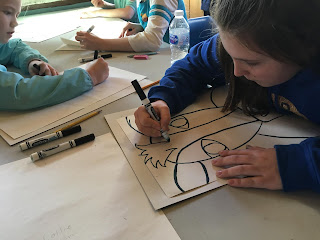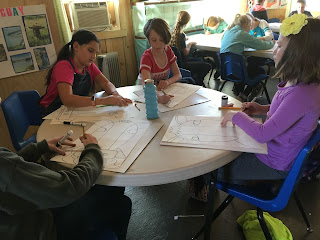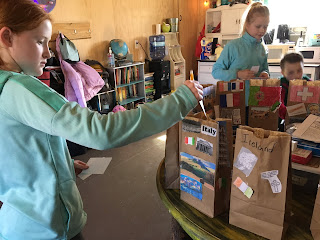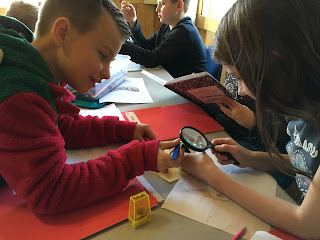Instead of jumping right outdoors to take care of the animals, we decided to stay in a little bit for today's Farm News in hopes that things would warm up a tiny bit! The class learned that we are keeping the new calf, Clara. We talked about the due date of the pregnant goats that are now in our "maternity ward". They've been given their CD&T shots and are now chilling out with some great hay and clean bedding. Come on, kidding season!




The class has really been enjoying our book, Hatchet! We talked about the trials and struggles that Brian has had recently. This book is just perfect for this age group. They are able to put themselves into Brian's shoes and can really appreciate his growth as a person. The class then set to work on a vocabulary review crossword. There are so many great words in this part section of the book! We talked about the Quiz Time sheet for these chapters, and then the class shared their field guides.


I have been giving the class some time together to compare, share, and add to their field guides. They have been using this time to scour through resource books and talk to each other about the things that Brian is encountering in the wilderness. I love this! Not only are they learning about the plants, animals, and earth science concepts as Brian does, they are learning to use indexes and glossaries, to skim to weed out unimportant information and find the facts they are looking for, and to summarize the information in written form.

The students brought in information and pictures from different European countries. In class, they worked on creative a paper bag to represent each different country. Then, they placed their information cards into the appropriate bags. They are setting up for a large in-class research activity, but for now we will work on creative the paper bags for many of the European countries that we are studying.




On our wall, we placed a huge "pond" where the kids placed different protists. Last week, they created protists that utilized different methods of mobility. Some had flagella, some cilia, while others had pseudopods or simply floated through our pond. Today was the last day to place them into our Pond Life pond!

























































